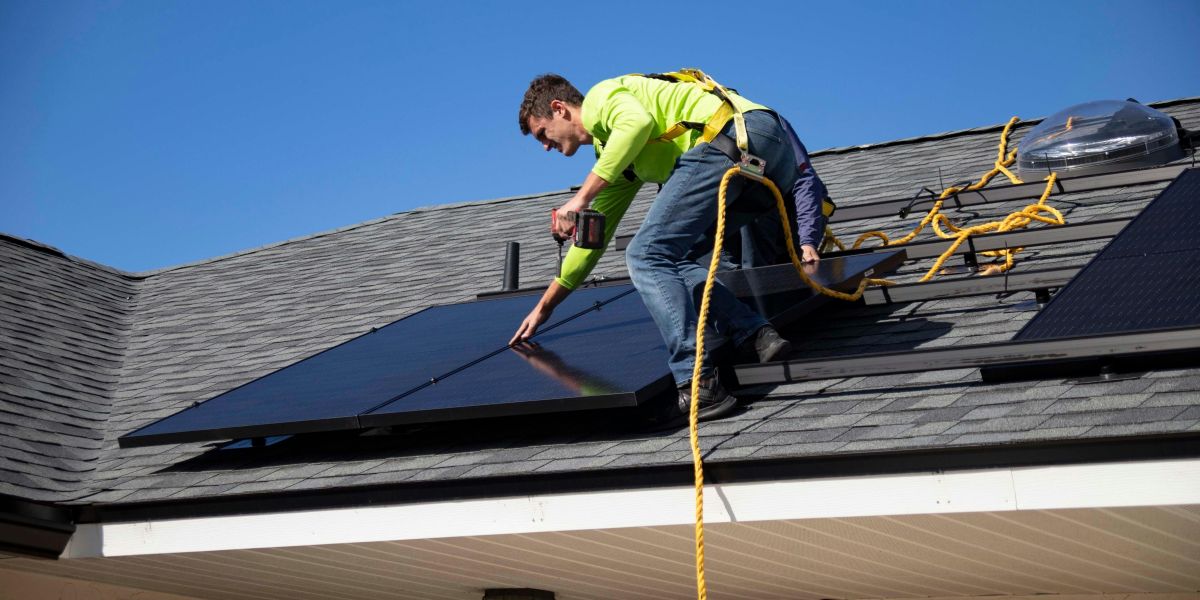Solar energy is gradually reshaping how we power our homes and businesses. As awareness of environmental sustainability grows and energy costs continue to rise, an increasing number of people are considering solar panels as a way to reduce their carbon footprint and lower electricity bills. If you’re contemplating making the shift, exploring the variety of solar panel kits available today could be an ideal first step.
What Are Solar Panels and How Do They Work?
Solar panels are devices designed to convert sunlight into usable electricity. Composed of multiple photovoltaic (PV) cells, these panels absorb sunlight and generate direct current (DC) electricity. This DC electricity is then converted into alternating current (AC) through an inverter, allowing it to power household appliances.
The efficiency and quality of solar panels have generally improved over the years, making solar energy more accessible and potentially affordable. By installing solar panels, you could reduce reliance on traditional energy sources, lower electricity bills, and contribute to a cleaner environment.
For those new to solar energy, starting with BougeRV solar panel kits could make the installation process simpler. These kits include all necessary components, such as panels, mounting hardware, wiring, and inverters, offering a comprehensive solution for both homeowners and businesses.
Advantages of Using Solar Panel Kits for Home Energy
Choosing solar panel kits can be a practical approach to investing in solar energy without the challenge of sourcing individual components. These kits are designed for ease of installation and can typically be set up by either DIY enthusiasts or professional installers.
One notable advantage of solar panel kits is their scalability. Whether you aim to power a small cabin or a large home, kits are available in various sizes and configurations to meet different energy demands. This flexibility allows you to start small and gradually expand your system as your needs evolve.
Additionally, many solar panel kits come with user manuals and support resources, making the transition to solar energy less overwhelming. These kits also often include warranty coverage, offering some protection for your investment over time.
Using a complete kit ensures that all components are compatible, which can help improve system efficiency and potentially extend the system’s lifespan. This integrated approach may save you time and money, creating a smoother path toward sustainable energy. Explore reliable solar panel kits to enhance convenience and efficiency in your home energy projects.
Environmental Impact and Cost Savings with Solar Panels
Installing solar panels represents one of the most effective methods for reducing your environmental impact. Solar energy is clean, renewable, and produces no greenhouse gas emissions during operation, making it an important factor in combating climate change.
By generating your electricity, you decrease dependence on fossil fuels and reduce the demand on power plants, which are contributors to air pollution. Over the lifespan of a solar panel system, this could lead to a significant reduction in carbon emissions.
From a financial perspective, solar panels can help lower your electricity bills. Once installed, solar panels produce free energy from the sun, which can offset your monthly energy costs. Many regions also offer tax incentives, rebates, or net metering programs, making solar energy more financially viable for some.
When paired with efficient solar panel kits, you can potentially maximize energy production and system performance, which might result in quicker returns on your investment. Explore premium solar panels to make an eco-friendly and economical energy choice.
Installation Considerations for Solar Panel Kits
Proper installation is key to the performance and durability of your solar energy system. Fortunately, solar panel kits are designed to simplify the process, often including mounting hardware and clear instructions.
Before installation, it’s important to assess the sunlight exposure in your location. Ideal placement often involves rooftops or open areas with minimal shading throughout the day. The angle and orientation of the panels also influence energy capture, so following manufacturer guidelines could be essential.
Using a solar panel kit ensures component compatibility, reducing potential technical issues during setup. For those unfamiliar with electrical systems, hiring a certified installer may help ensure compliance with local regulations and provide additional peace of mind.
Maintenance of solar panels is generally straightforward, involving periodic cleaning and inspections to maintain optimal efficiency. Investing in a quality solar panel kit could improve durability and long-term performance.
Future Trends and Innovations in Solar Panels
The solar energy industry is continually evolving, with innovations aimed at improving efficiency and accessibility. Advanced materials and technology are making solar panels lighter, more flexible, and potentially more efficient than ever before.
Emerging trends include bifacial solar panels that capture sunlight on both sides and integrated solar solutions that blend seamlessly with building materials. These developments expand the potential applications of solar energy in both urban and rural settings.
Additionally, smart solar panel kits are integrating with home energy management systems, allowing users to monitor and optimize energy use in real time. This connectivity could enhance energy savings and improve user convenience.
As the cost of solar technology continues to decline, a growing number of people may find these cutting-edge solutions accessible, helping to accelerate the global transition toward sustainable energy. Stay ahead with innovative solar panels and explore the latest solar panel kits for your home or business.
















